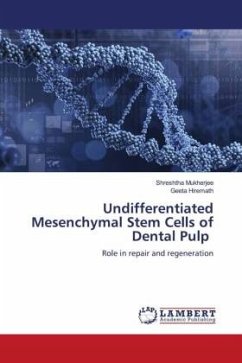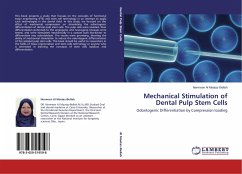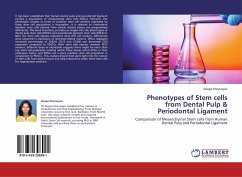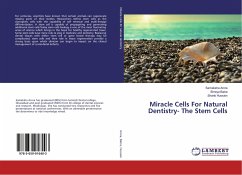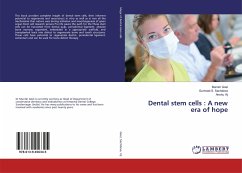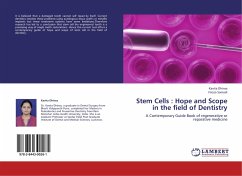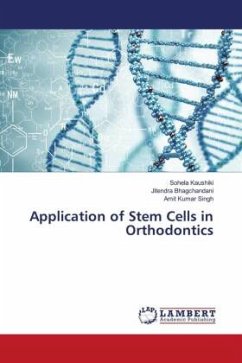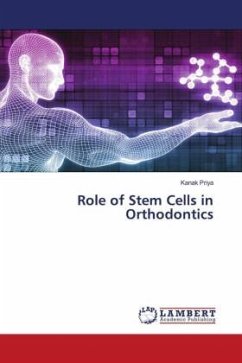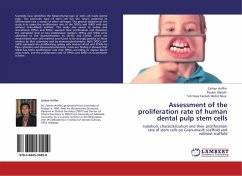
Assessment of the proliferation rate of human dental pulp stem cells
Isolation, characterization and their proliferation rate of stem cells on Granumas® scaffold and without scaffold
Versandkostenfrei!
Versandfertig in 6-10 Tagen
32,99 €
inkl. MwSt.

PAYBACK Punkte
16 °P sammeln!
Scientists have identified the Mesenchymal type of stem cell inside dental pulp. This particular type of stem cell has the future potential to differentiate into a variety of other cell types. The general objective of the study is to assess the proliferation rate of the DPSCs and SHED with and without GranuMas® scaffold. This study also aimed to isolate and characterize DPSCs and SHED, assessed their proliferation and detection the expression level of two proliferative markers. DPSCs and SHED were addressed to the characterization by CD105 and CD166, which are mesenchymal stem cells markers a...
Scientists have identified the Mesenchymal type of stem cell inside dental pulp. This particular type of stem cell has the future potential to differentiate into a variety of other cell types. The general objective of the study is to assess the proliferation rate of the DPSCs and SHED with and without GranuMas® scaffold. This study also aimed to isolate and characterize DPSCs and SHED, assessed their proliferation and detection the expression level of two proliferative markers. DPSCs and SHED were addressed to the characterization by CD105 and CD166, which are mesenchymal stem cells markers and found to be strongly positive to these markers by flow cytometry and by immunocytochemistry. Both DPSCs and SHED expressed the proliferating cycling cells markers (Ki-67 and PCNA) by flow cytometry and immunocytochemistry. From our finding it showed that SHED has faster proliferation rate than DPSCs according to Alamar Blue® assay result, and the proliferation rate of DPSCs and SHED on GranuMas® is lower.



